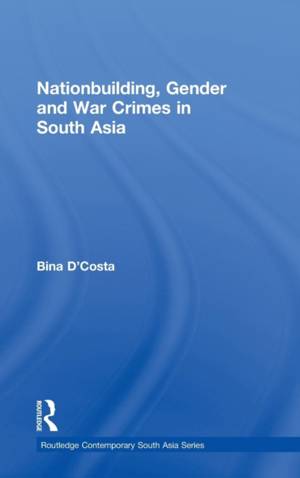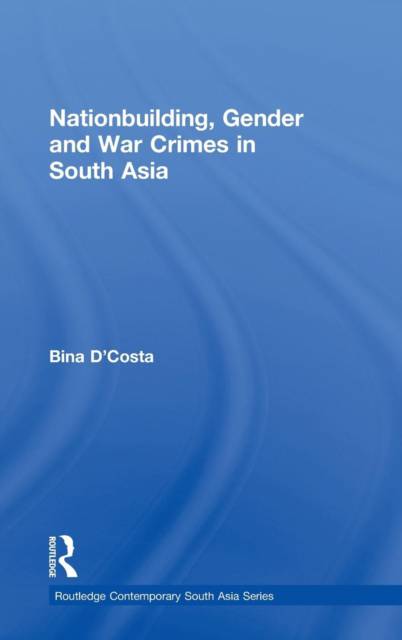
- Afhalen na 1 uur in een winkel met voorraad
- Gratis thuislevering in België vanaf € 30
- Ruim aanbod met 7 miljoen producten
- Afhalen na 1 uur in een winkel met voorraad
- Gratis thuislevering in België vanaf € 30
- Ruim aanbod met 7 miljoen producten
Omschrijving
This book gives a detailed political analysis of nationbuilding processes and how these are closely linked to statebuilding and to issues of war crime, gender and sexuality, and marginalization of minority groups.
With a focus on the Indian subcontinent, the author demonstrates how the state itself is involved in the construction of a gendered identity, and how control of women and their sexuality is central to the nationbuilding project. She applies a critical feminist approach to two major conflicts in the Indian subcontinent - the Partition of India in 1947 and the Liberation War of Bangladesh in 1971 - and offers suggestions for addressing historical injustices and war crimes in the context of modern Bangladesh. Addressing how the social and political elites were able to construct and legitimize a history of the state that ignored these issues, the author suggests a critical re-examination of the national narrative of the creation of Bangladesh which takes into account the rise of Islamic rights and their alleged involvement in war crimes.
Looking at the impact that notions of nation-state and nationalism have on women from a critical feminist perspective, the book will be an important addition to the literature on gender studies, international relations and South Asian politics.
Specificaties
Betrokkenen
- Auteur(s):
- Uitgeverij:
Inhoud
- Aantal bladzijden:
- 256
- Taal:
- Engels
- Reeks:
Eigenschappen
- Productcode (EAN):
- 9780415565660
- Verschijningsdatum:
- 15/07/2010
- Uitvoering:
- Hardcover
- Formaat:
- Genaaid
- Afmetingen:
- 156 mm x 234 mm
- Gewicht:
- 557 g

Alleen bij Standaard Boekhandel
Beoordelingen
We publiceren alleen reviews die voldoen aan de voorwaarden voor reviews. Bekijk onze voorwaarden voor reviews.











